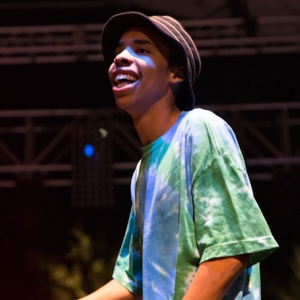Review: Earl Sweatshirt defies modern ‘prodigy’ branding; he actually is one
The term “prodigy” gets thrown around a lot. Especially when YouTube, Soundcloud and their brethren make it easy for teenage guitar shredders and pop singers to get not just fans but sponsorships and record deals, the market is oversaturated; when everyone is special, no one is special.
But Earl Sweatshirt is still special. And maybe that term “prodigy” can stick to him as more than just generic praise – at any rate, it’s been thrown at him constantly since he released his debut mixtape, Earl, at the ripe age of 16 to widespread acclaim, becoming the Next Big Thing in rap circles and helping to jettison Odd Future into stardom. Doris, Earl’s official debut LP, comes three and a half years later, a long wait partially caused by a parentally-imposed exile to a boys’ school in Samoa that’s only served to build anticipation for the album to an explosive level. With such great expectations, it’s not shocking that Doris is a fairly strong outing and only half-surprising that it’s a little disappointing.
One of Doris’ biggest assets (and one of its minor detriments) is that much of it is basically what you’d expect from Earl. For the most part, he’s dropped the bizarre crime narratives and Odd Future-defining immaturity that hung over Earl, and his wordplay is stronger than ever, serving to accentuate his monstrous flow, but most of the tracks rely on long, hookless verses atop bleak, synthy beats. Earl’s a talented enough rapper, and most of the beats (many of them self-produced under the name randomblackdude) are strong enough, that the problem becomes less apparent with repeat listens. The abyssal strategy even contributes toward some of the album’s best tracks: on “Hive,” an unsettling backdrop scores verses by Earl and Vince Staples, criticizing the media, politics, the justice system, and basically every other facet of society.
Even so, it’s when Earl branches out further, both musically and lyrically, that Doris really shines. “Chum” and “Burgundy” share a taste for piano jazz-influenced hip-hop beats, the former being the most melodic track on the album; both tracks also address Earl’s issues with his absent father, South African poet laureate Keorapetse Kgositsile. On “Burgundy,” he covers his irritations with blood-adorned responsibilities, lamenting “those expectations raising because daddy was a poet, right?,” while on “Chum” he acknowledges the fact that he misses his father, even though “I used to say I hate him in dishonest jest.” The record’s best musical shift isn’t all Earl, though: when Frank Ocean steals the show with an unexpected rap verse on “Sunday,” the song suddenly shifts from a dark, slow-burning beat to a series of warm synth hits.
None of the other guest spots here hold a candle to Ocean’s on “Sunday” or Staples’s on “Hive,” but they’re all enjoyable – some surprisingly so. “Guild” is a continuation of Mac Miller’s transformation from a frat-hop favorite to a legitimate indie-rapper that began on his pleasant Watching Movies with the Sound Off. Tyler, the Creator can be an obnoxious presence – he certainly is on “Whoa” – but he’s so deadpan that he’s entertaining on “Sasquatch,” even when he opens talking about eating at Taco Bell.
None of that takes away from Doris being the Earl Sweatshirt Show, of course. The most offensive thing about the album is that it’s not spectacular, but, at the very least, it’s a 45-minute showcase for the skills of a rapper who many argue is one of – if not the – most talented of his age group. The simple fact that a debut this good still shows room for improvement isn’t just a testament to Earl’s talent; it’s a sign of legendary things to come.
Overall Rating: 8.5/10
